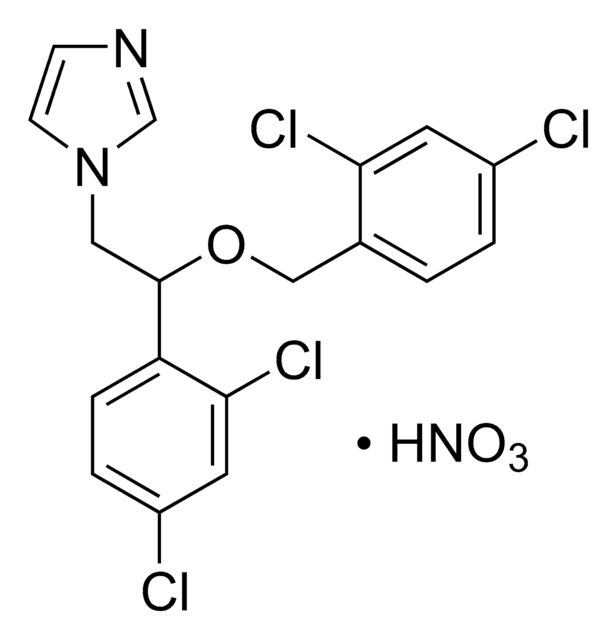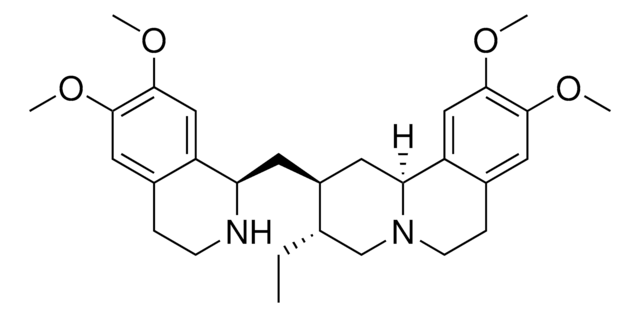E4632
Econazole nitrate salt
Synonym(s):
1-(2-[(4-Chlorophenyl)methoxy]-2-[2,4-dichlorophenyl]ethyl)-1H-imidazole
About This Item
Recommended Products
form
powder or crystals
Quality Level
color
white to off-white
antibiotic activity spectrum
Gram-positive bacteria
fungi
Mode of action
cell membrane | interferes
cell wall synthesis | interferes
enzyme | inhibits
SMILES string
O[N+]([O-])=O.Clc1ccc(COC(Cn2ccnc2)c3ccc(Cl)cc3Cl)cc1
InChI
1S/C18H15Cl3N2O.HNO3/c19-14-3-1-13(2-4-14)11-24-18(10-23-8-7-22-12-23)16-6-5-15(20)9-17(16)21;2-1(3)4/h1-9,12,18H,10-11H2;(H,2,3,4)
InChI key
DDXORDQKGIZAME-UHFFFAOYSA-N
Looking for similar products? Visit Product Comparison Guide
General description
Application
Biochem/physiol Actions
Signal Word
Warning
Hazard Statements
Precautionary Statements
Hazard Classifications
Acute Tox. 4 Oral - Eye Irrit. 2 - Skin Irrit. 2
Storage Class Code
11 - Combustible Solids
WGK
WGK 3
Flash Point(F)
Not applicable
Flash Point(C)
Not applicable
Personal Protective Equipment
Choose from one of the most recent versions:
Certificates of Analysis (COA)
Don't see the Right Version?
If you require a particular version, you can look up a specific certificate by the Lot or Batch number.
Already Own This Product?
Find documentation for the products that you have recently purchased in the Document Library.
Customers Also Viewed
Our team of scientists has experience in all areas of research including Life Science, Material Science, Chemical Synthesis, Chromatography, Analytical and many others.
Contact Technical Service












